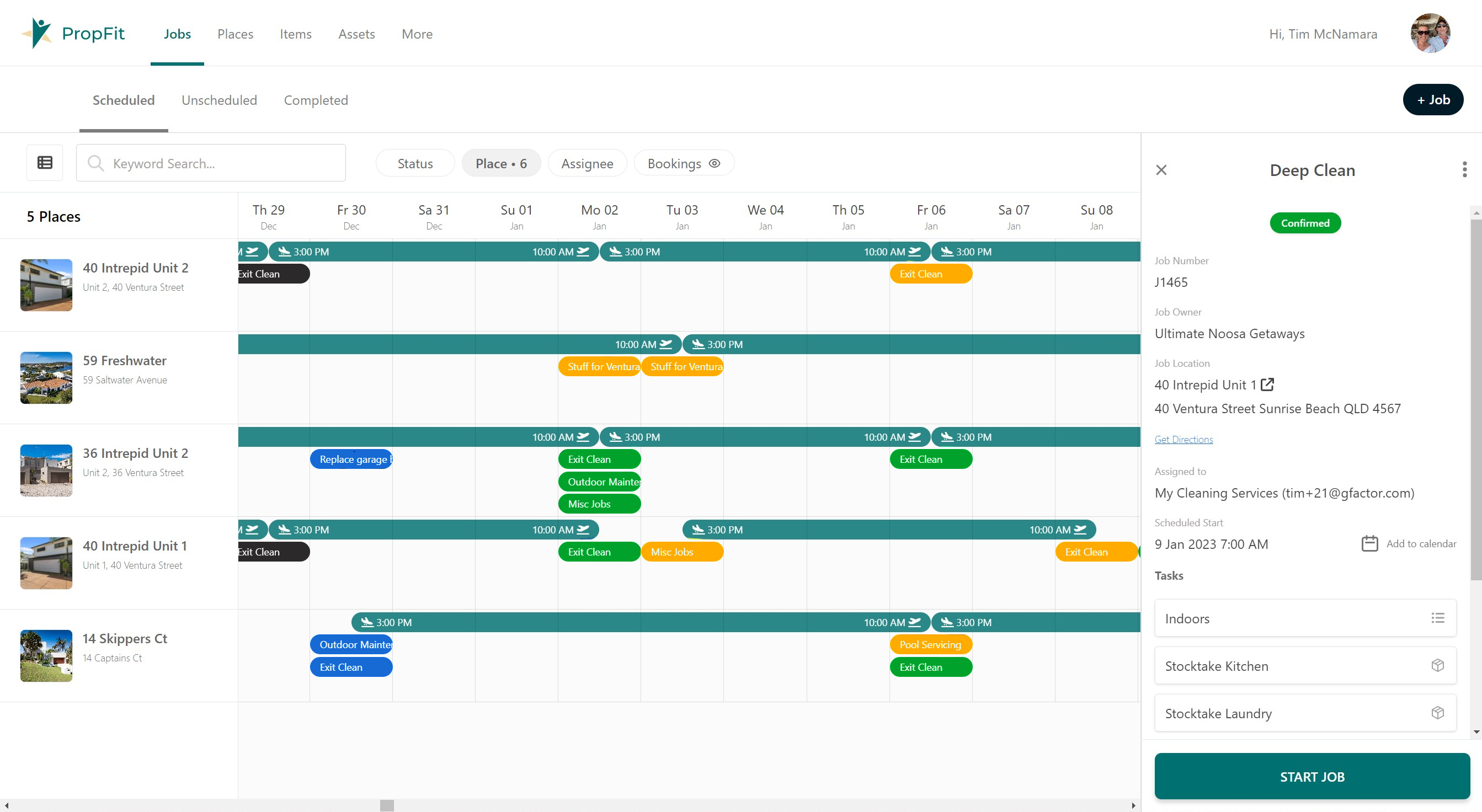Evyn Jenkins
Hey, I'm Evyn. 👋
I am a full-stack web professional and cyber security student.
Typescript
Python
Java
C
React
NextJS
GraphQL
PostgreSQL
OS Agnostic
Systems

PropFit
PropFit is a SaaS web application for property managers and landlords to manage their properties, bookings and tasks.
It has facilities for scheduling and assiging jobs, assets and maintenance tasks, and integrates with existing booking managers (like AirBnB) to be an all-in-one solution for property management.
I have been a part of the PropFit team since 2020 and have worked on nearly every part of the app, from the front-end design and performance, to the GraphQL API and back-end database and services.
The area of the app which I am most proud of is the calendar view. It presented a complex challenge to create a performant, user-friendly and practical interface for managing bookings and jobs.
My work on PropFit has taught me a lot about working in a team with designers, products managers and testers, managing a large codebase, working with a variety of technologies and the importance of good documentation, source control and testing practices.

Portfolio
This portfolio website!
I created this site using Next.js with Chakra UI and some TailwindCSS. Next.js is my framework of choice for hobby projects and contract work. I love the flexibility and performance it provides.
This portfolio is a work in progress. Details of other completed projects will be added soon!
